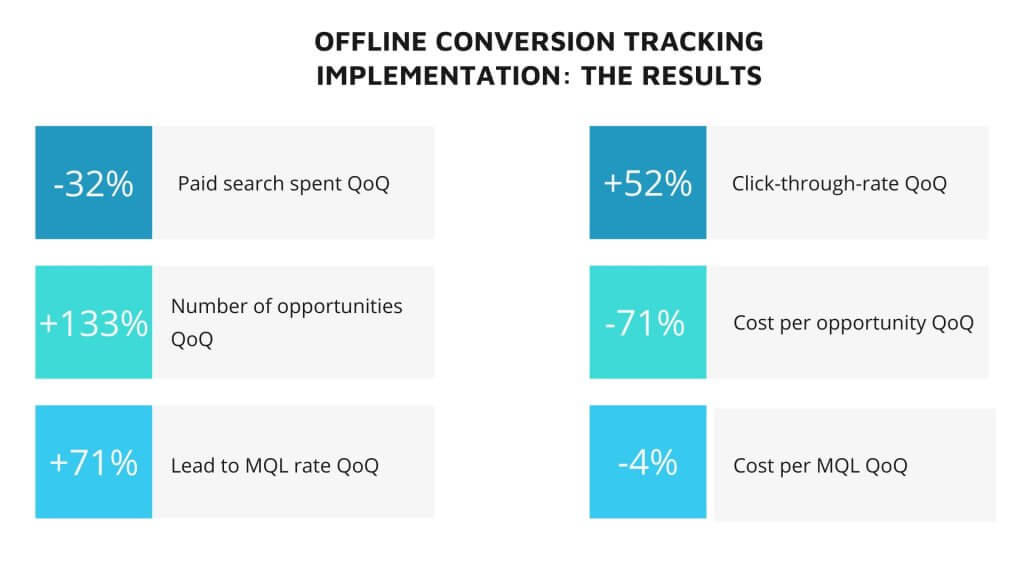The Challenge
Due to budget constraints and a very competitive environment, the main challenge the client team faced at the beginning of their engagement with Obility was getting qualitative traffic and conversions. Even though the volume of conversions was significant, the number of opportunities and leads were low and of poor quality.
The Solution
In order to support the growth of the client’s lead-to-MQL rate and improve the quality of the conversions from paid search campaigns, Obility made setting up offline conversion tracking a priority.
Implementing offline conversion tracking helped Obility identify conversions that turn into leads and opportunities, and adjust its paid search strategy accordingly.
Once offline conversion tracking was in place, Obility shifted the paid search and display strategy to focus on bottom-of-the-funnel users. That meant excluding less relevant queries and concentrating on core campaigns. Keyword targeting was adjusted to exact match type and only prioritized campaigns and landing pages that historically drove opportunities. In order to focus on BOFU users, demo requests landing pages were prioritized. This approach enabled Obility’s client to effectively compete with major players in the notoriously competitive DTC space, despite having a limited budget.
Finally, Obility was able to improve its bidding strategy by using offline conversion tracking to optimize for MQLs based on back-end lead data. This data is more reliable in identifying potential opportunities, allowing for more effective bidding.
The Results
Thanks to this BOFU-centric approach, Obility’s paid search strategy became more and more efficient and the traffic more qualified.
In Q1 2023, the paid search spend was lowered by 32% QoQ, but the lead quality improved significantly: the number of opportunities increased by 133%, the lead-to-MQL rate improved by 61%, the click-through-rate went up by 52% and the cost-per-opportunity went down by 71%.

